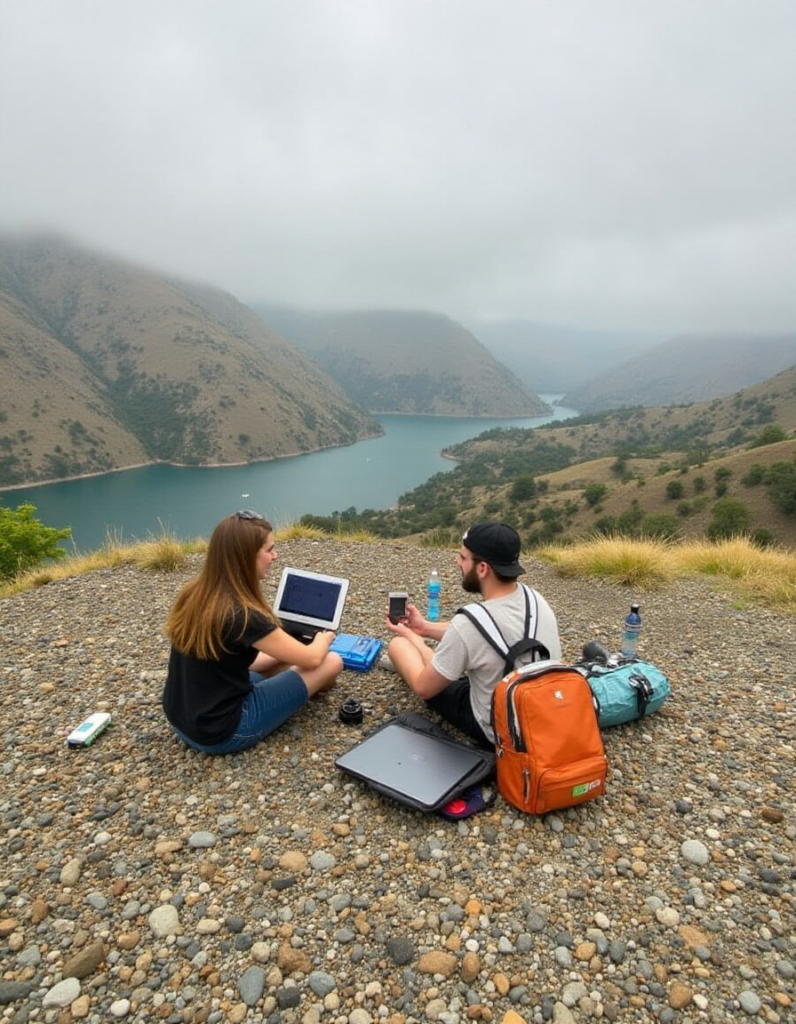Introduction
For IT professionals working remotely, the ability to live and work in different countries without immigration restrictions is a key advantage of the digital age. Several nations have recognized this trend and created visa programs tailored specifically for digital nomads. These programs offer flexible residency options, tax incentives, and a welcoming environment for remote workers. In this article, we explore six countries that provide convenient visa options and supportive conditions for digital nomads.
Key Takeaways
- Spain, Portugal, Hungary, Croatia, Estonia, and Georgia offer dedicated digital nomad visas.
- These visas allow remote workers to live legally while working for foreign employers.
- Some countries offer tax advantages or reduced bureaucracy for freelancers.
- Residency durations vary, with options for renewal or transition to permanent residency.
- Family members can accompany the visa holder in most cases, with work and social benefits available in some destinations.
1. Spain
Spain offers a Digital Nomad Visa (Visado de Trabajar a Distancia), allowing remote workers to live in the country while working for foreign employers or as freelancers. Applications can be submitted from within Spain, making it convenient for those already in the Schengen Area.
Tax Benefits:
- Employees: Eligible for the Beckham Rule, which caps income tax at 24% on declared earnings. Foreign income and assets are exempt from taxation.
- Freelancers: Required to register as Autónomo (self-employed) and pay social security contributions. Tax rates range from 19% to 47%, but most digital nomads earning under €60,000 annually pay around 20%.
Residency Duration and Renewal:
- Visa D: Issued for one year and can be converted into a two-year residence permit.
- Applying from Spain: Directly grants a three-year residence permit.
- Path to Permanent Residency: After five years, applicants can qualify for permanent residency (PR).
Family Inclusion:
- Family members can join the applicant and receive social benefits.
- Spouses and dependents can work part-time (20 hours per week) or continue remote work without restrictions.
2. Portugal
Portugal’s Digital Nomad Visa is designed for remote workers and freelancers with foreign income sources. Applicants need to show proof of a contract with a foreign employer or stable self-employment income of at least €3,480 per month.
Visa Options:
- One-Year Visa: Cannot be extended or converted to a residence permit.
- Four-Month Visa: Allows conversion to a two-year residence permit, renewable for an additional three years.
Taxation:
- Progressive tax rates range from 14.5% to 48%.
- Setting up atividade (freelancer status) after two years allows for significant tax reductions (approximately 20% tax on €1,500 monthly income).
Residency Duration and Renewal:
- The residence permit is valid for two years and renewable for three years.
- After five years, applicants can apply for permanent residency and citizenship.
Family Inclusion:
- Family members can relocate and have full work rights.
3. Hungary
Hungary’s White Card is a special residence permit for remote workers and entrepreneurs. It offers a quick application process (approximately two months) and allows unrestricted travel within the Schengen Zone.
Requirements:
- Minimum monthly income of €3,000.
- Proof of remote employment or business ownership.
- Six-month bank statement showing financial activity and tax compliance.
Residency Duration and Renewal:
- One-year permit, extendable for an additional year.
- Does not lead to permanent residency or citizenship.
- Applications must be submitted from the applicant’s country of citizenship or current residence.
Family Inclusion:
- Not available – the White Card is issued only to the primary applicant.
4. Croatia
Croatia’s Digital Nomad Visa is available to freelancers and remote workers. The application can be submitted in person or online.
Residency Duration and Renewal:
- The visa is issued for up to one year and cannot be renewed.
- Applicants must leave Croatia after visa expiry and wait six months before reapplying.
Family Inclusion:
- Family members can apply separately and must meet specific eligibility requirements.
5. Estonia
Estonia was one of the first countries to introduce a Digital Nomad Visa, allowing remote workers to live in Estonia while working for foreign companies.
Requirements:
- Minimum gross monthly income of €3,504.
- Proof of remote work and employment contract or business ownership.
Residency Duration and Renewal:
- Visa is issued for up to one year.
- No renewal option – a new application is required after expiration.
Family Inclusion:
- Family members can join but must apply separately and meet additional requirements.
6. Georgia
Georgia’s Remotely from Georgia program allows digital nomads to live in the country while working for foreign clients.
Residency Duration and Renewal:
- Valid for up to one year, with the option to apply for residency afterward.
- The visa process is simple and does not require prior residence in Georgia.
Taxation:
- Income under $155,000 per year is taxed at 1%.
- High-income earners may be subject to 20% tax.
Family Inclusion:
- Family members can relocate with the applicant.
Conclusion
For remote IT professionals, these six countries offer visa programs that provide legal residency, tax advantages, and quality living conditions. Spain and Portugal offer long-term residency and pathways to citizenship, while Hungary, Estonia, and Croatia provide short-term solutions for digital nomads. Georgia stands out for its low-tax environment and flexible entry process. Choosing the right destination depends on financial goals, long-term residency plans, and lifestyle preferences.
#DigitalNomads
Source – schengen.news










